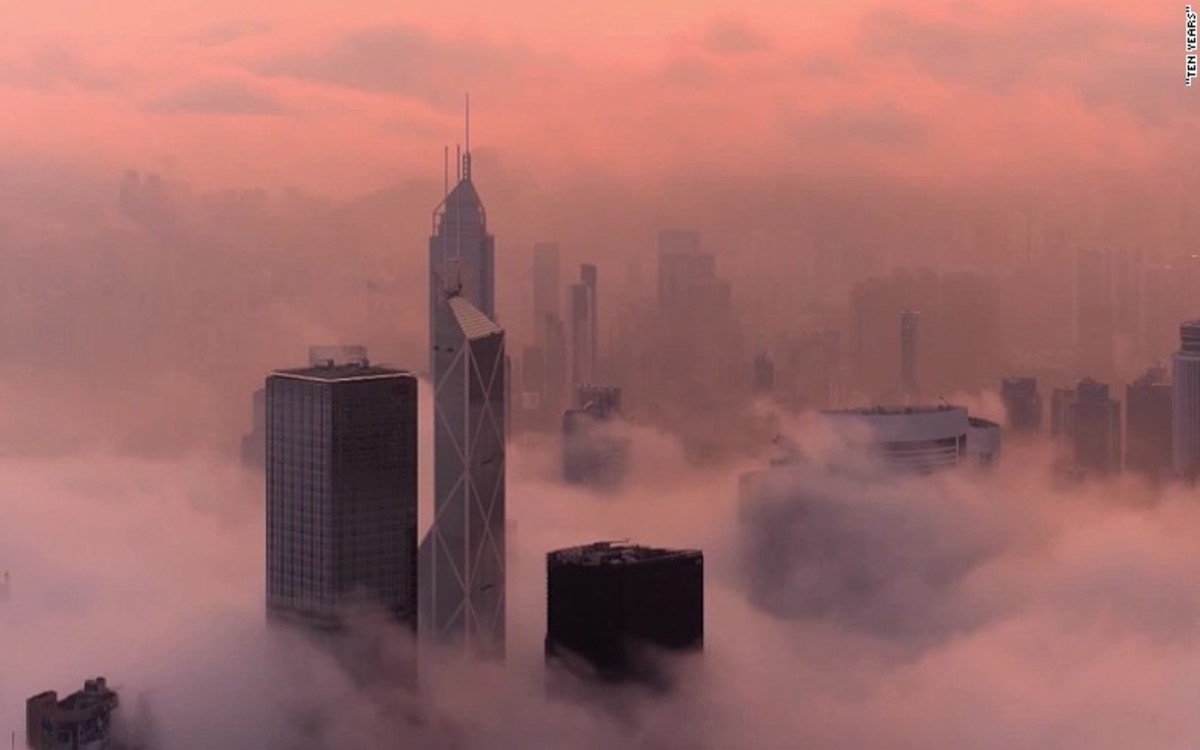The television broadcast and online streaming of this year’s Hong Kong Film Awards have effectively been banned in mainland China amid speculation that the cancellations are due to the nomination of dystopian Hong Kong film Ten Years in the best picture category.
Both state broadcaster China Central Television (CCTV) and Tencent, which had the online streaming rights, have reportedly pulled out of airing the ceremony despite previous agreement to show it.
Derek Yee Tung-sing, chairman of the Hong Kong Film Awards Association’s board of directors, confirmed the reports with Hong Kong newspaper Ming Pao Daily, saying he expects a loss of HK $4 million to 5 million ($510,000-$640,000) if the contract with Tencent was cancelled.
Ten Years presents a bleak future for Hong Kong under Beijing rule in the year 2025. Chinese state-run newspaper Global Times previously denounced the low-budget movie, which became a surprise hit in Hong Kong, as “ridiculous” and a “virus of the mind” spreading desperation.
“We can understand why this film exists, and why this has become an issue,” Derek Yee Tung-sing told Ming Pao.
Ten Years recently ended its run in Hong Kong cinemas, with one of its directors expressing concerns that local theater operators were engaging in self-censorship. Tensions in Hong Kong have been heightened following the disappearance of five Hong Kong residents involved in published books critical of Chinese leaders, sparking protests in which thousands took to the streets of Hong Kong to demand their return. Under the “one country, two systems” principle that governed the 1997 transfer of Hong Kong from British to mainland Chinese rule, the city is to enjoy a high degree of legal and political autonomy from the Beijing government through the year 2047.
“Given the tense environment inside China right now, it wouldn’t surprise me in the least to see Chinese state television pull broadcast plans over the sensitive nature of Ten Years,” David Bandurski, a researcher at the Hong Kong-based China Media Project, told China Film Insider. “Hong Kong has become an extremely sensitive issue for the Chinese leadership, and the sensitive nerves extend to any and all forms of cultural exchange.”
The Hong Kong Film Awards will be held on April 3. According to Hong Kong’s Apple Daily, interviews from the ceremony and reports about the ceremonies will still be reported in mainland media.
The news of the cancellations came at the same time as mainland media reported that Baidu’s iQiyi, one of China’s largest video streaming services, will stream the Oscars live from Hollywood with both Chinese and English language options for its viewers.
But Beijing is more concerned about controlling the flow of information and images that relate directly to events associated with the People’s Republic of China itself, Jeffrey Wasserstrom, a professor of Chinese history at the University of California, Irvine, told CFI.
Statements and images that contradict or challenge official lines on issues such as Tibet, or the massacre of pro-democracy students in Beijing on June 4, 1989, and the Hong Kong Umbrella Movement are of particular sensitivity, Wasserstrom said, but they are unlikely to come up during the Oscars.
“By contrast, there’s a good chance that, when participants veer into political realms, they will highlight topics such as racial inequality in the United States that the Chinese government is happy to see foregrounded,” Wassterstrom said.
In the latest sign that Beijing is stepping up control over the country’s media, on Friday Chinese President Xi Jinping visited three state-run media operations including China Central Television. Xi told editors and reporters they must pledge absolute loyalty to the Communist Party and closely follow its leadership in “thought, politics and action”.
Last week also saw the issuance of new regulations will restrict foreign companies and joint ventures from publishing online content in China without government approval.
Contrary to various Hong Kong press reports, the premier film awards held on the self-governed island of Taiwan do not appear to be affected by the ban imposed on the Hong Kong Film Awards. In an email to China Film Insider, Nowia Leu, a spokesperson for the Taipei Golden Horse Film Festival Executive Committee, said that the association was aware of the reports but that it was “not clear.”
However, a censorship directive leaked to the news website China Digital Times on Monday said the ban was on both the Hong Kong Film Awards and Taiwan’s Golden Horse Awards.
—Additional reporting by Zoe Law
[This story was updated at 5:45pm ET on February 23, 2016]






